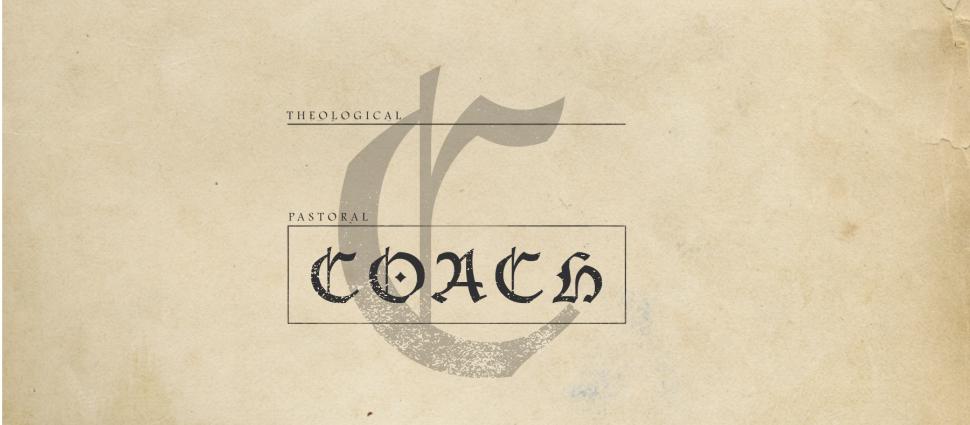Every Pastor Needs a Theology Coach

Every pastor needs “coaching.” Though they have gone by different names over the years (mentors, teachers, etc.) the ideas of mature men helping others mature in leadership has always been around. Pastors need seasoned leaders that can speak into their lives to help them think and work through pastoral ministry. After entering the pastorate most of us quickly learn—there is a lot to learn.
Most pastoral coaching today tends to focus on skills, practical problem solving, and relationship issues. How can I grow in my ability to preach? How does a growing church that is maxed out in space transition to two services? What is the best method for training elders? Coaching often zeros in on best practices and systems. These are important matters that we often need help with. But what concerns me is the far less common theology coaching among ministers.
Many of us have seen recent, and very public, theological train wrecks driven by pastors who do not appear to be under the coaching, or tutelage, of seasoned theological leaders. As I observe and talk with pastors from different denominations and networks I can't help but get the impression that many pastors limit their theological investment to seminary (if they went to one), or the occasional doctrinal issue. This is dangerous not only to ourselves, but to the church as well.
Every pastor needs a theological coach. Every pastor. If you are the sharpest theologian/biblical thinker you know, then you are in serious trouble. After all, Paul told Timothy: "Keep a close watch on yourself and on the teaching. Persist in this, for by so doing you will save both yourself and your hearers" (1 Timothy 4:16).
All Christians, especially pastors, must constantly develop and reform their understanding of God and his work by the Scriptures. While we all probably agree on this, such work is not something we are suited to do alone. As sinful and limited human beings, even as Christians, even with advanced degrees, we will not get every point of doctrine correct. We will get some things wrong. We need help to see what we are missing, to correct where we err. Even those of us who subscribe to confessional standards must seek to further clarify and develop our understanding and application of theology to our lives and to the work of ministry.
Denying the role of theological coaches in your life is to deny the very structure of the church God has created. He gave us teachers and preachers for the equipping of the church. And pastors need equipping as well. Yes, Scripture alone is our authority, and it alone tells us what we need to know about the Lord. But we need help understanding all that God has revealed in Scripture. Does any pastor think he has somehow attained a kind of theological perfection? God help him.
Theological clarity not only strengthens your faith but also the faith of those that you seek to serve. And this really hits at what is the mission of the church. We are called to make disciples (Mt. 28:18-20) by means of preaching, teaching, and shepherding (1 Tim. 4:13; 2 Tim. 4:1, 2 ; 1 Pet. 5:1, 2) and this cannot happen apart from sound doctrine (Tit. 2:1). We must fight against heresy while teaching the truth (1 Tim 1:3). We must preach the knowledge of God that conforms to godliness (1 Tim 6:3). We must proclaim his excellencies (1 Pet. 2:9). This demands logical clarity.
Call it what you will, but all pastors need theological and pastoral coaching. You can find coaches in the local church, in your network or denomination, and they can even be found in books. I have many theology coaches, and most of them are dead! But not all. As much as I love theology, I love the Lord himself more--but, the two are inseparable. Brothers, give yourself to the study of doctrine, get help from other brothers who can guide you. Your calling demands more of you than you have within yourself.





